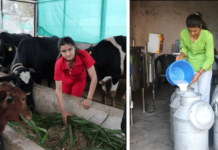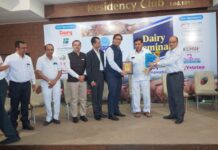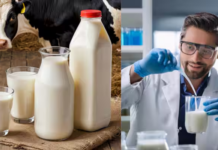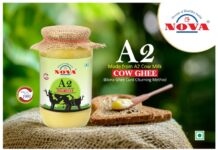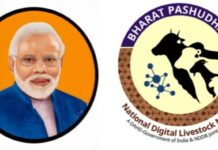New Delhi, July 13, 2022: Seven years ago, as her young daughter battled a disease caused by adulterated milk, Rupali Kakade was frantically surfing the Net to find out where major dairy brands were sourcing their milk. What she realised was that most big brands did not make their sources known publicly — which raised questions in her mind. Meanwhile, her daughter’s condition needed a solution. “We decided to buy cows for our farm in Junnar for milk and dairy products,” she says. It worked — and Kakade went on to set up a farmer-producer company, Gauecogram Agrovikas Producer Co Ltd, to bring chemical-free, organic products to a market that lacked such options.
In 2018, the company started selling the products under the brand, Truly Desi, with Rupali Kakade and Mohit Rathod as co-founders. In the first year, it earned a revenue of Rs 5.42 lakh, growing to Rs 89 lakh the next year and, then, to Rs 2.71 crore in the last financial year. Truly Desi keeps more than 100 cows at their Junnar farm and has 300-400 cows more at connected farms. “We gained most of our subscription during the pandemic as people switched to healthy food. Maybe, people started researching more about healthy eating due to the deadly coronavirus,” says Rathod.
Now, the company is venturing out of Pune into Mumbai, Nashik, Nagpur and Aurangabad, with plans for Tier II cities. “The Mumbai market is very aware of organic products but, in many Tier II and III cities, we will have to tap into people’s collective memories of drinking milk from desi cows. Price point will be a major issue at such places though…we are looking for a first-mover advantage,” says Rathod.
Organic food has emerged as a competitive sector in India since the pandemic and, according to market research company IMARC, is estimated to grow at 25.25 per cent in 2022-2027. “A major factor driving the demand for organic food in India is the rising levels of health awareness in the country. Indian consumers have started giving attention to the nutrient content and the quality of the food they eat, thereby leading to a rising demand for organic food. Moreover, driven by factors such as strong economic growth, urbanisation, and rising income levels, the consumer expenditure on health and wellness products has increased significantly,” reads the report.
According to the reports published in indianexpress.com organic food is defined as products that are free of synthetic fertilisers, pesticides and hormones and feeds for cattle and livestock, among others. Truly Desi is trying to create an ecosystem around a cow-bred economy, with every dimension of the business connected to one another. The byproducts of milk are sold in the market directly and in a B2C or business-to-consumer model, through supermarkets in Pune. The cow dung is being used to produce biogas and the liquid slurry to make bio-fertilisers. “We are giving the bio-fertilisers to farmers to cultivate crops organically. We buy the crops from them and sell them in the market,” says Rathod.




